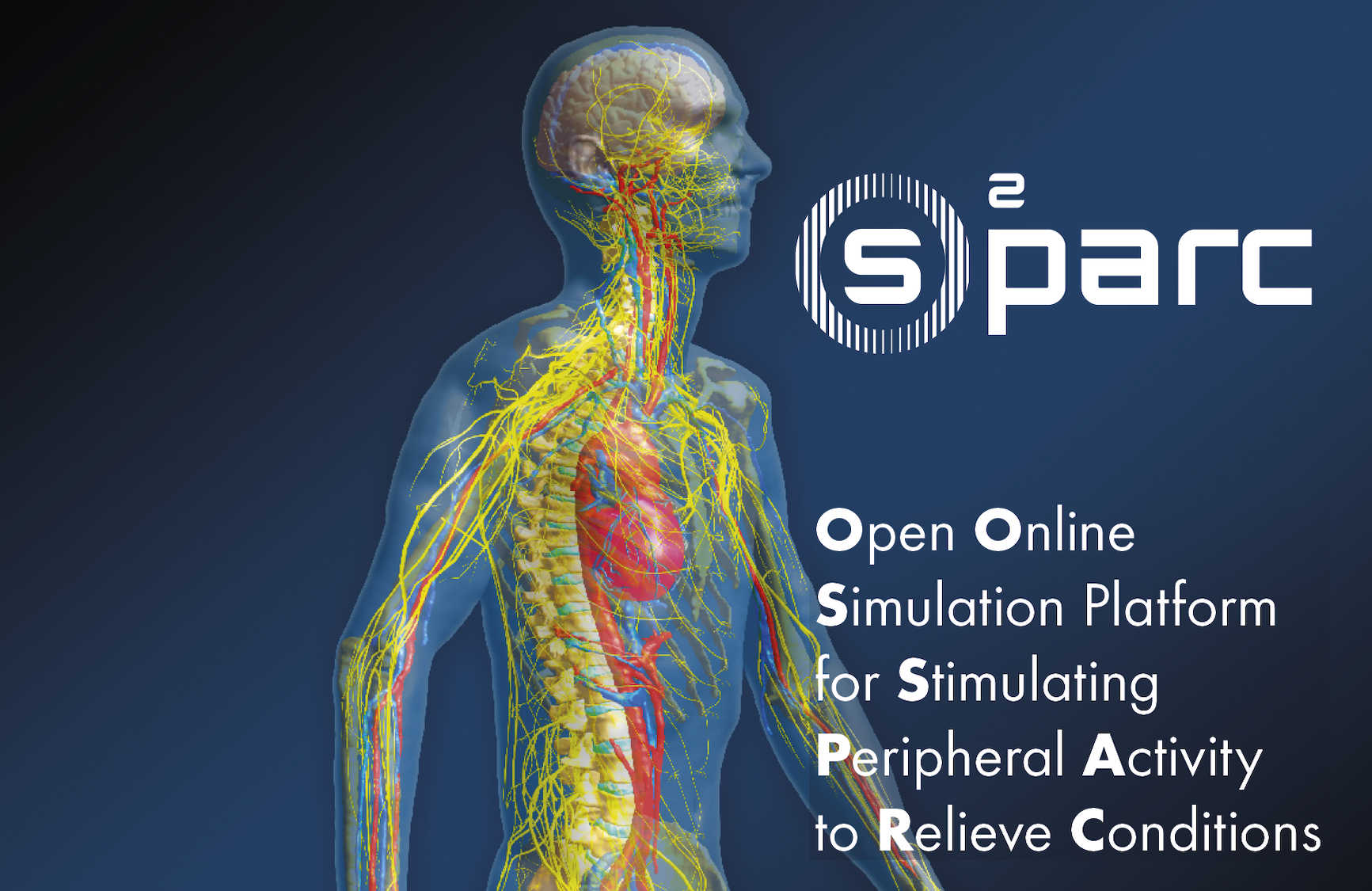The SIM-CORE, named o2S2PARC – Open Online Simulations for Stimulating Peripheral Activity to Relieve Conditions – is one of the three integrative cores of the SPARC program’s Data Resource Center (DRC). The aim of o2S2PARC is to establish a comprehensive, freely accessible, intuitive, and interactive online platform for simulating peripheral nerve system neuromodulation/ stimulation and its impact on organ physiology in a precise and predictive manner. To achieve this, the platform will comprise both state-of-the art and highly detailed animal and human anatomical models with realistic tissue property distributions that make it possible to perform simulations ranging from the molecular scale up to the complexity of the human body.
A production instance of o2S2PARC is running at oSPARC.io.
If you want to spin up your own instance, you can follow the common workflow to build and deploy locally using the Linux commandline (Ubuntu recommended). Make sure you first install all the requirements mentioned in the section below.
# clone code repository
git clone https://github.com/ITISFoundation/osparc-simcore.git
cd osparc-simcore
# show setup info and build core services
make info build
# starts swarm and deploys services
make up-prod
# display swarm configuration
make info-swarm
# open front-end in the browser
# 127.0.0.1.nip.io:9081 - simcore front-end site
#
xdg-open http://127.0.0.1.nip.io:9081/
# to stop the swarm
make downSome routes can only be reached via DNS such as UUID.services.DNS. Since UUID.services.127.0.0.1 is not a valid DNS, the solution is to use nip.io. A service that maps <anything>[.-]<IP Address>.nip.io in "dot", "dash" or "hexadecimal" notation to the corresponding <IP Address>.
Services are deployed in two stacks:simcore-stack comprises all core-services in the framework and ops-stack is a subset of services from ITISFoundation/osparc-ops used for operations during development.
To build and run:
- git
- docker
- make >=4.2
- awk, jq (optional tools within makefiles)
To develop, in addition:
- python 3.10: we recommend using the python manager pyenv
- nodejs for client part: we recommend using the node manager nvm
- vscode (highly recommended)
To verify current base OS, Docker and Python build versions have a look at:
- GitHub Actions config
If you want to verify if your system has all the necessary requirements:
make infoWhen developing on these platforms you are on your own.
On Windows, it works under WSL2 (Windows Subsystem for Linux version2). Some details on the setup:
- Follow all details on how to setup WSL2 with docker and ZSH docker for windows and WSL2
MacOS is currently not supported.
Updates are upgraded using a docker container and pip-sync. Build and start the container:
cd requirements/tools
make build
make shellOnce inside the container navigate to the service's requirements directory.
To upgrade all requirements run:
make reqsTo upgrade a single requirement named fastapirun:
make reqs upgrade=fastapiWARNING This application is still under development.
- Git release workflow
- Public releases
- Production in https://osparc.io
- Staging instructions
- User Manual
For developers wanting to add/test code changes, a version can be built that will on-the-fly incorporate changes made in the source directory into the running containers. To enable this, the following commands should be used to build, instead of the ones provided in the Getting Started section:
# clone code repository
git clone https://github.com/ITISFoundation/osparc-simcore.git
cd osparc-simcore
# setup python environment and activate
make devenv
source .venv/bin/activate
# show setup info and build core services
make info build build-devel
# starts swarm and deploys services
make up-devel
# The above command will keep in running with "[RUN] Running command..."
# Open another terminal session, to continue
# display swarm configuration
make info-swarm
# open front-end in the browser
# 127.0.0.1.nip.io:9081 - simcore front-end site
#
xdg-open http://127.0.0.1.nip.io:9081/
# to stop the swarm
make downWould you like to make a change or add something new? Please read the contributing guidelines.
This project is licensed under the terms of the MIT license.







